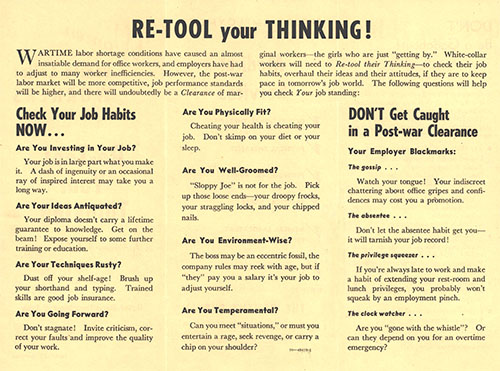The FRASER team had a busy 2022, adding new collections of documents, publications, and archival materials to our unique digital library of economic history, and researching and writing about the interesting histories behind those materials.
Our 2022 blog posts delved into FRASER features, such as the addition of the Monetary Policy Timeline and the implementation of search improvements and API functionality. FRASER staff uncovered the history of women on American currency, the history of women employed by the Treasury, and told the stories of the Reconstruction Finance Corporation and the period from 1965-1980 known as the Great Inflation. In this post, we will recap the variety of interesting materials we added in the past year which may not have received a special mention on our blog, but are important and necessary additions to our fast-growing collection.
Federal Reserve Materials
In 2022, our collection of statements and speeches of Federal Reserve System leaders grew with the addition of statements and speeches given by members of the Board of Governors during the year. These included the speeches of three new governors: Lisa D. Cook and Philip N. Jefferson, who took office in May, and Michael S. Barr, who took office in July. Our collection of Board-related materials expanded with the addition of the nomination hearings of members of the Board of Governors, including hearings from 1966-2022.

Throughout the year, the FRASER team added to our collection of Fed research publications, picking up some new titles along the way. From the Federal Reserve Bank of Cleveland, the mid-century Basic Business News and Business Trends were added, as well as several modern publications. Materials related to the Federal Reserve Bank of Atlanta’s Retail Payments Risk Forum were added, including the Take On Payments Blog, a dialogue on the emerging risks in retail payments systems, and improvements to risk detection and mitigation. FRASER now holds earlier issues of Research Papers and Research Update of the Federal Reserve Bank of New York, as well as speeches of former New York Fed presidents William J. McDonough, Timothy F. Geithner, William C. Dudley, and Allan Sproul.
FRASER’s collection of the publications of the Federal Reserve Bank of Dallas was enhanced this year with several additions, including a two-volume history of the Dallas Fed, archived circulars (later referred to as “notices”), and a quarterly look at economic topics of interest, Financial Insights. In collaboration with the Federal Reserve Bank of San Francisco, FRASER archived the discontinued data publications Wage Rigidity Meter and Tech Pulse Index (also converted to a FRED graph at San Francisco Tech Pulse). St. Louis Fed publications the Review and Economic Synopses were added, as well as retired publication Liber8. In January, as we do every year, we added the prior year’s volumes of research publications from the Chicago Fed.
Archival Collections

The FRASER team continued its important work of collecting and digitizing the materials of the Women’s Bureau of the Department of Labor, this year expanding our collection to include statistics on women in the workforce, the current newsletter of the Women’s Bureau, and several archival series of reports on women in medical services, women in congress, and women in the world. Also from the Department of Labor, publications by the Bureau of Labor Statistics were added, with data on women’s earnings and women in the labor force, as well as on minimum wage workers, mass layoffs, consumer expenditures, labor force characteristics, and the working poor.
FRASER’s many collections of government documents were expanded yet again this year, with a focus on the publications of the Works Progress Administration, the Reconstruction Finance Corporation (reports and circulars), and the Records of the Federal Home Loan Bank Board. In early 2022, the team completed a project to organize and post the Records of the War Relocation Authority, a group of records held by the National Archives and Records Administration. These records consist of selected materials which reflect the tasks of the Federal Reserve Bank of San Francisco in assisting forcibly removed and interned Japanese-Americans with the disposition and storage of their property during World War II.

For the first time, FRASER added a banking trade publication to its collections, the Northwestern Banker, which is now available from 1897-1988. This publication includes reports on banks and banking at the state level, as well as news on banking developments in Washington, D.C., and elsewhere that affected the banking industry, providing a valuable look at a century of changes to banking technology and legislation.
Finally, the FRASER team completed a project we began in 2021 to digitize and add the entire 107-year run of the Monthly Labor Review, an expansive look at labor data. The publication, now available in full, from its first issue in 1915 to the current issue, was explored in-depth in a 2022 Inside FRASER post and webinar.
For the FRASER team, 2022 was another exciting and productive year, with several big additions and some helpful site improvements. Stay tuned for more FRASER updates via our newsletter, or follow our daily updates on Twitter. If you have a great idea for a site enhancement, a collection, or know where we can find some of the materials on our Needs List, email us!
© 2023, Federal Reserve Bank of St. Louis. The views expressed are those of the author(s) and do not necessarily reflect official positions of the Federal Reserve Bank of St. Louis or the Federal Reserve System.
